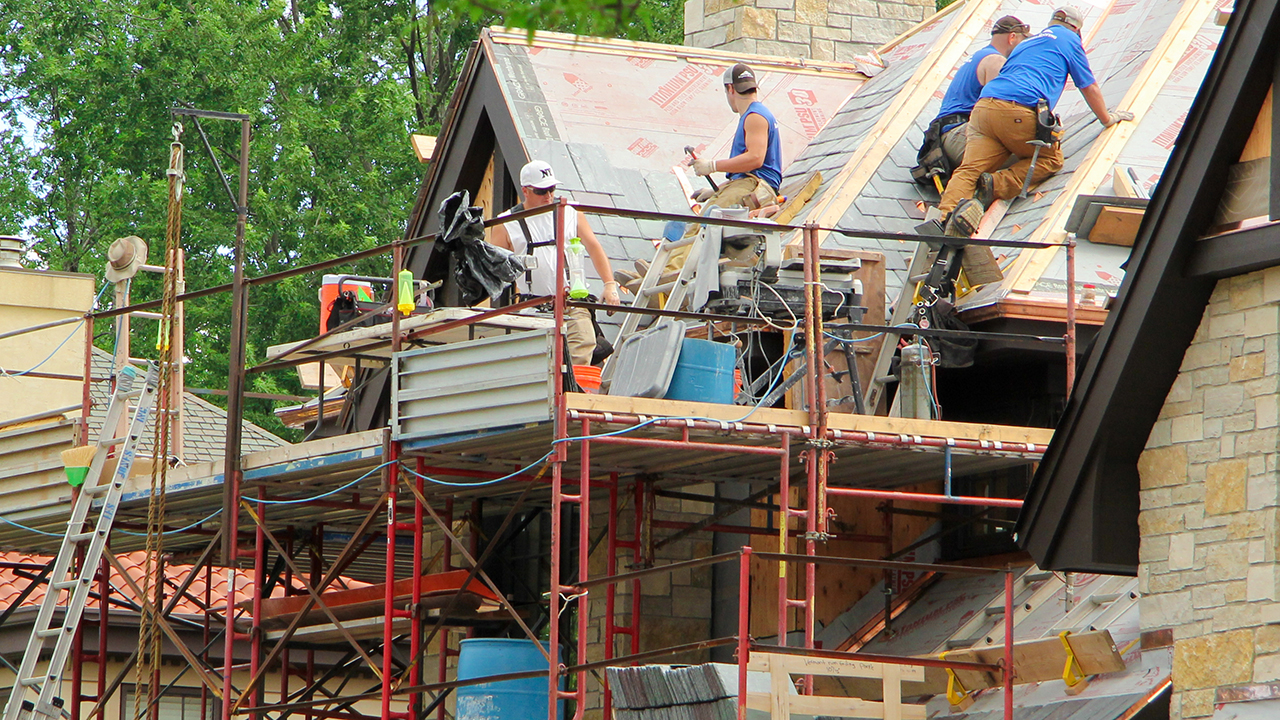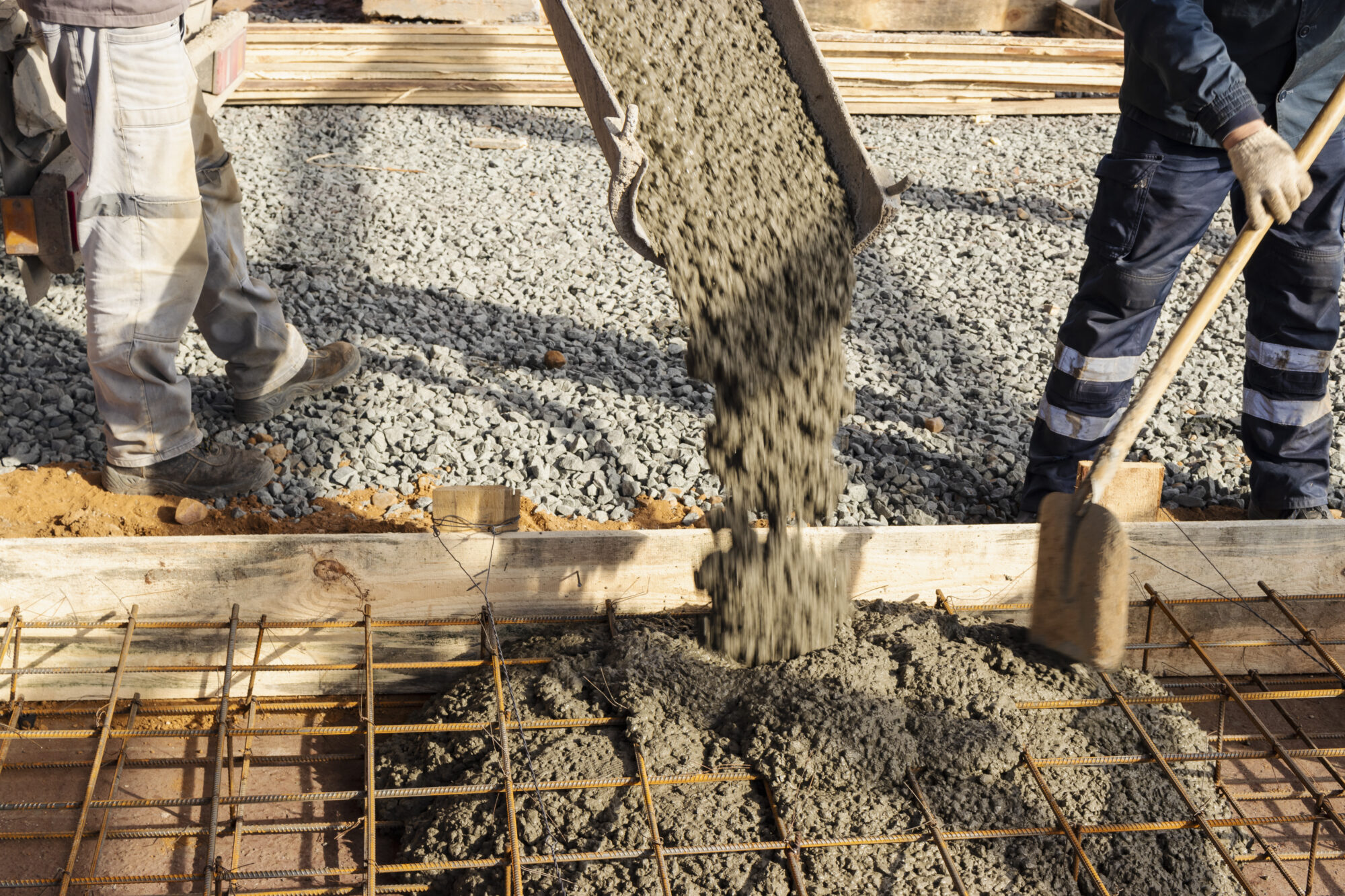
Fresh Energy is committed to creating a clean energy economy, and two important areas of our work focus on decarbonizing Minnesota’s industry and building sectors. As an organization, we’re laser focused on advancing a wide range of ambitious and actionable policies in these areas and a strategic way we have been taking on this work is by supporting “demand-side” policies like ensuring that when the government funds public infrastructure projects, it does so in a way that’s better for our climate and our communities. Demand-side policies create proactive ways to increase demand (and thus spending) for certain goods or services, which can stimulate further market growth. An example of a demand side policy is the Federal “Buy Clean” initiative, which is a procurement policy to promote the purchase of certain clean and sustainable construction material and products.
During the 2023 session of the Minnesota Legislature, our state passed the Buy Clean Buy Fair Act. This law will guarantee that when the State of Minnesota funds infrastructure projects, it uses products and materials that are clean and sustainable. This not only supports the state’s climate goal of being carbon neutral by 2050, but also sends a strong signal to the private sector to use sustainable building materials, too. Policies like this create a virtuous feedback loop where infrastructure projects use cleaner, better materials, and create more demand for them in the process. We love a win-win!
Minnesota’s Buy Clean Buy Fair law kicks off a six-year working group called the Environmental Standards Procurement Task Force that will provide recommendations to the state for purchasing cleaner materials in public projects, as well as dates by which standards need to be developed for different building materials. This climate-forward policy ensures Minnesota is leading from the North and helps private entities meet their greenhouse gas (GHG) reduction goals for sourcing building materials.
The backbone of Buy Clean Buy Fair is creating a climate-friendly procurement policy to make sure that the steel, aluminum, and concrete that we use to build and revitalize our infrastructure is cleaner. It also promotes good, family-sustaining American manufacturing jobs and reduces the impact of climate change while rebuilding public infrastructure. Buy Clean Buy Fair’s procurement policy is mutualistic because it rewards companies for using high-quality labor, cleaner and safer infrastructure, and supporting good American and Minnesotan jobs—something we all benefit from.
Embodied carbon: emissions of concrete, steel, and asphalt
Buy Clean’s procurement process will require manufacturers to create an estimate of the emissions of building materials like steel, concrete, and asphalt, similar to the nutrition label you’d find on two loaves of bread at the grocery store. While these loaves of bread may appear identical, you can look at the label to identify the healthier loaf. Thanks to Buy Clean, states like Minnesota can identify and use the materials with the least amount of embodied carbon—the sum of all the carbon emissions from a building material’s entire life cycle, including production, transportation, installation, maintenance, and disposal.
Buildings account for 40% of global carbon emissions, and nearly one-third of those emissions result from embodied carbon associated with building materials like concrete, steel, and asphalt. Producing building materials is an energy- and carbon-intensive process, and it’s important we begin measuring embodied carbon in our building materials to begin using cleaner building materials.
Take concrete, for example: concrete is one of the most widely used materials in the construction industry and is made of cement. Cement production alone emits 41.3 million metric tons (MMT) of CO2 per year, the second-largest source of industrial CO2 emissions in the United States, according to the Environmental Protection Agency (EPA). Since 2009, these emissions have increased by almost 40 percent, thanks to increasing demand for cement. However, a report from the Rocky Mountain Institute finds that concrete producers can already optimize their concrete mix to reduce GHG emissions by 14-33% at little to no cost—a process that policies like Buy Clean can incentivize.
Iron and steel are other common building materials, and their production is responsible for 38.4 MMT of CO2 emissions a year, according to the EPA. Most of the emissions from using steel come from the energy required to produce it, which means using highly-efficient arc furnaces powered by clean energy can drastically reduce its emissions profile. In fact, emissions from the iron and steel industry have already dropped by 80% since 1990 thanks to these technological improvements and using recycled steel.
Asphalt accounts for 0.3 MMT of CO2 emissions a year. Much of this can be reduced by reusing and recycling old asphalt and using energy-efficient heating processes powered by clean energy. Buy Clean will help identify and incentivize cleaner ways of using building materials.
As Fresh Energy’s Industry Department engages in Minnesota’s new Environmental Standards Procurement Task Force, we look forward to helping set standards for each building material and helping Minnesota buy materials at or below the requirement.
Procurement policies transform markets
Buy Clean Laws Across America
Blue Green Alliance (BGA) formed a coalition of other business, labor, and environmental organizations in 2016 to advocate for Buy Clean laws across the nation. California was the first state to enact a Buy Clean law in 2017, and since then Washington, Oregon, and Colorado have also enacted Buy Clean laws. Minnesota first proposed Buy Clean legislation in 2018, and also passed a Buy Clean study and Buy Clean/Buy Fair pilot program in 2021, before passing Buy Clean Buy Fair into law in 2023.
In 2021, President Biden established the first-ever national Buy Clean program through Executive Order 14057, “Catalyzing Clean Energy Industries and Jobs Through Federal Sustainability.” The federal government oversees an incredible amount of public infrastructure projects, and thus has a large purchasing capacity to influence the building market as a whole. Not only will the Federal Buy Clean policy help the U.S. achieve net-zero emissions economy-wide by 2050, but it will also shift the building market as a whole to be more climate-friendly.
Minnesota’s Buy Clean, Buy Fair Law

Minnesota passed the Buy Clean Buy Fair Minnesota Act in 2023 under BlueGreen Alliance’s (BGA) and United Steelworkers’ leadership. The law, authored by Representative Kaela Berg and Senator Erin Murphy, is a major step toward getting Minnesota on track to meet its GHG reduction goals. Minnesota’s Buy Clean Buy Fair law goes even further than most Buy Clean policies by establishing a grant program to help Minnesota’s manufacturers in this transition to ensure they can compete for state construction bids requiring materials with lower embodied carbon.
Buy Clean supports Minnesotan industries and jobs
BGA led the Buy Clean Buy Fair Act in Minnesota and unites labor unions and environmental organizations to solve environmental challenges in a way that creates and maintains quality jobs while building a clean, thriving, and equitable economy. BGA’s core objectives of clean jobs, clean infrastructure, and fair trade are well-represented in Minnesota’s new law that will advance family-sustaining labor jobs while decarbonizing the industry and building sectors.
“The benefits of Buy Clean Buy Fair can ripple throughout Minnesota,” said BlueGreen Alliance Minnesota Policy Organizer Abby Hornberger. “Buy Clean will bolster good manufacturing jobs and create a race to the top, encouraging others to innovate to support clean air and good jobs.”
United Steelworkers District 11 also led the Buy Clean Buy Fair Act in Minnesota for the law’s ability to provide family-sustaining, important jobs to Minnesotans. “The bottom line is that we can make steel and other materials in the U.S. and make them better and cleaner. We should reward workers and companies doing things the right way by buying clean and buying fair when it comes to the materials we use to rebuild and modernize Minnesota’s infrastructure. It will support and grow good, family-sustaining, union jobs,” said Bob Ryan, District 11 Rapid Response Coordinator for the United Steelworkers.
“The coalition that won this victory was broad, and we will continue to work together on industrial policies that reduce environmental impact,” added Hornberger.
Next steps
Fresh Energy is acting on multiple levels to decarbonize the industry and building sectors, and in this case, the passage of Buy Clean Buy Fair into law was just the first step. We’re looking forward to engaging with the Environmental Standards Procurement Task Force beginning in October 2023 to provide recommendations on how to best implement the Buy Clean Buy Fair law in Minnesota.
We also anticipate that, thanks in part to this law, new opportunities will arise for local governments to create their own procurement processes that use cleaner materials and support American jobs. There’s also an opportunity to participate in state-level master contracts, which allow local agencies to contract with the Minnesota Department of Transportation.
But the work doesn’t stop here. Fresh Energy is following the science and advancing our mission, actively identifying new policies and strategies to support industries looking to decarbonize their process emissions. Stay tuned as the work continues!
